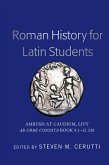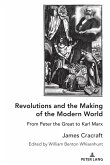From the beginning, kings ruled Rome; Lucius Brutus established freedom and the consulship. So wrote the Roman historian Tacitus in the second century AD, but the view was orthodox. It is still widely accepted today.
But how could the Romans of later times have possibly known anything about the origins of Rome, the rule and subsequent expulsion of their kings or the creation of the Republic when all those events took place centuries before anyone wrote any account of them? And just how useful are those later accounts, those few that happen to survive, when the Romans not only viewed the past in light of the present but also retold stories of past events in ways designed to meet contemporary needs?
This book attempts to assess what the Romans wrote about the early development of their state. While it may not, in the end, be possible to say very much about archaic Rome, it is certainly possible to draw conclusions about later political ideas and their influence on what the Romans said about their past, about the writing of history at Rome and about the role that stories of past events could play even centuries later.
But how could the Romans of later times have possibly known anything about the origins of Rome, the rule and subsequent expulsion of their kings or the creation of the Republic when all those events took place centuries before anyone wrote any account of them? And just how useful are those later accounts, those few that happen to survive, when the Romans not only viewed the past in light of the present but also retold stories of past events in ways designed to meet contemporary needs?
This book attempts to assess what the Romans wrote about the early development of their state. While it may not, in the end, be possible to say very much about archaic Rome, it is certainly possible to draw conclusions about later political ideas and their influence on what the Romans said about their past, about the writing of history at Rome and about the role that stories of past events could play even centuries later.
Dieser Download kann aus rechtlichen Gründen nur mit Rechnungsadresse in A, D ausgeliefert werden.









